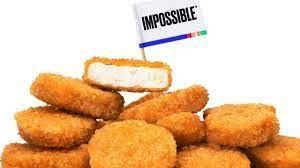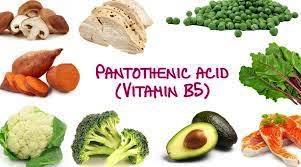 Press reports indicate that plant-based chicken nuggets have been withdrawn from sale in Australia as a result of inclusion of a “banned substance”. According to the report, this action was taken following detection of calcium pantothenate as a component of the vegetable-based formula. This is either a misrepresentation in reporting or a problem of non-disclosure in labeling. Calcium pantothenate is the accepted name for vitamin B5, an essential nutrient and not regarded as a deleterious compound that would justify a ban. It is possible that the action was taken as a trade-protective measure since Australia has a strong livestock industry with concern over imported innovative vegetable-based meat and poultry products.
Press reports indicate that plant-based chicken nuggets have been withdrawn from sale in Australia as a result of inclusion of a “banned substance”. According to the report, this action was taken following detection of calcium pantothenate as a component of the vegetable-based formula. This is either a misrepresentation in reporting or a problem of non-disclosure in labeling. Calcium pantothenate is the accepted name for vitamin B5, an essential nutrient and not regarded as a deleterious compound that would justify a ban. It is possible that the action was taken as a trade-protective measure since Australia has a strong livestock industry with concern over imported innovative vegetable-based meat and poultry products.
The outstanding impression from the news report and the review of posted public comments is the overwhelming ignorance of nutrition and ingredients displayed by representatives of livestock agriculture and those who post on social media. Dave Banham the manager of the New South Wales Farmers’ Poultry Association stated “It was concerning to hear synthetic versions of popular children’s foods were not meeting food safety standards”. He added “This sort of case shakes confidence in synthetic food products. Until we know these processed products are one hundred precent safe my family will sticking with natural foods like real chicken.”

Numerous posted comments appended to the press article alluded to “chemicals”, “synthetics” and “falling foods standards”. This indicates that mainstream egg, chicken and turkey producers as well as companies that produce plant-based alternatives have a long way to go to convince consumers of the safety of food products and to convey principles of science and nutrition irrespective of the level of education among consumers. Among the numerous deprecatory comments was a single posting from a physician noting that the “additive” in question was in fact an essential vitamin.
The concerns expressed by commentators in Australia are reminiscent of the fake survey conducted in a supermarket by students of communication who gathered signatures from shoppers agreeing that legislation was necessary to ban ‘dihydro-oxygen” (water) in foods.